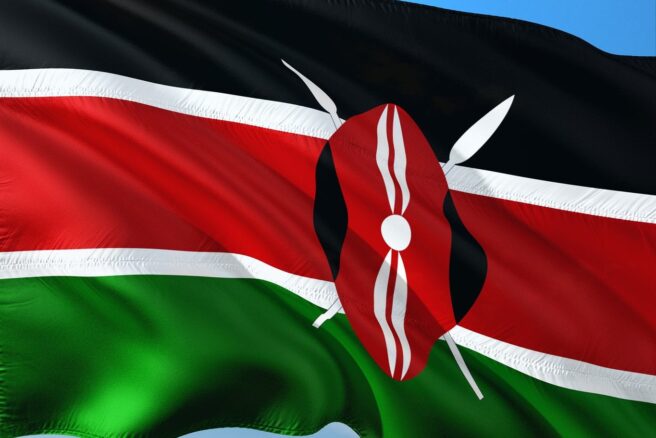New generation of ideological politics has emerged in Kenya. Is this a turning point for the democratization of Kenyan politics?
Protests mobilized by Generation Z in June 2024 came as a surprise for the Kenyan government. The national civil action movement was triggered by rejection of the Finance Bill 2024 but evolved from a technocratic problem to political reform of democracy.
The Finance Bill included a variety of tax hikes, such as increased VAT on bread and added fuel tax to cover the fiscal deficit and accumulated public debt in Kenya. Poor governance and waste of public funds have resulted in youth unemployment and brain drain, income inequality and poverty.
Kenya has officially been a multiparty democracy since 1990s and is often cited as a role model for African democratic development. However, state capture by the elite has been prevalent, including bribery of the opposition. Current president William Ruto, who was elected in 2022, campaigned himself as the “hustler candidate”, speaking specifically to youth and informal sector by making promises of jobs and “bottom-up” politics to decrease income inequality and poverty. However, these promises have not been delivered.
Ongoing peaceful protests have been met with unconstitutional police brutality, killings and abductions of protesters. After the protest escalated to activists storming into the parliament in Nairobi in June, Kenyan president William Ruto cancelled the Finance Bill and removed his political cabinet, reinstalled some of them later and formed a broad-based government by including the opposition members to his cabinet.
However, this was not the end of the protests. The aftermath revealed a deeper goal of the protests, which is the rejection of the entire political regime in Kenya. Politicization of the Kenyan society this summer has enabled a saturation of politics which have disrupted relations of local corruption and international governance of development.
“We are tribeless, leaderless, fearless”
What differentiates the GenZ political movement is its nature free of tribalism and organic aggregation of youth to pursue a shared political goal. The movement emerged through social media platforms such as X and TikTok without a leader or organization, and rather considers the 2010 constitution and rule of law being its leader. It was triggered and mobilized a nation-wide movement online that took to the streets rejecting corruption within the presidency as well as county and church administrations.
However, politics pursued by the youth is not defined by their age. Its focus is on shared causes and visions rather than identities. As Senegalese philosopher Souleymane Diagne has stated; “African thought has passed from yesterday’s thinking of identity, which was part of the struggle against colonialism, to today’s thinking of becomings.” By “becomings” he refers to transformative politics led by causes beyond tribal identities for example, as in Kenya tribalism can operate as a politically erosive force and cause polarization.
However, politics pursued by the youth is not defined by their age. Its focus is on shared causes and visions rather than identities.
The activists are inspired by late Frantz Fanon, a critical theorist from Martinique, who advocated for objective and subjective freedom of the people. This liberation is leveraged through collaborative solidarity and revolutionary humanism of that specific generation.
In his seminal book, Wretched of the Earth, Fanon describes this purpose as a generational mission to be fulfilled or betrayed. This messianic temporality is visible in the ability of the movement to unite the people to the mission of liberation by exercising their civil rights and in turn exposing the injustice within the system they all are a part of beyond tribalism.
As such the movement has created a window to contemporary demographic shifts in class politics, where the goal is the fundamental reform of the corrupt political system, as well as affirmative political imagination of democracy itself.
From development to politics
The uprising is also connected to a wider register of politics of development within the Global South and Africa. Development is political by nature, however, how it is pursued remains largely apolitical and undemocratic. The politicization of development is something that Global South politics have been advocating for since independence from colonization and more strongly now during shifting global geopolitics.
Locally, the division between development and politics is visible in the ratio of political organizations to development organizations. Kenya is a major hub of social entrepreneurship, non-governmental civil society, and development organizations in East Africa, as well as hosts UN headquarters in Nairobi.
At the same time, political organizations remain marginal. Kenya also has a large informal sector which accounts for a significant part of the economy and workforce. Third sector largely compensates for the poor implementation of public policy and service delivery by the state, externalizing responsibility of the social sector to NGOs which in turn weakens political mobilization of civil society to the sidelines.
The uprising is also connected to a wider register of politics of development within the Global South and Africa. Development is political by nature, however, how it is pursued remains largely apolitical and undemocratic.
Internationally, since the second world war, the treaty-based political order has dominated south-north cooperation and politics. Critique of the international political economy has been on the political agenda of the Global South especially since New Economic International Order (NIEO) in 1974. This entails a democratization of governance and decision-making processes of international organizations such as IMF, World Bank and UN.
Kenya’s continuation within the IFI system to solve the sovereign debt crisis has earned IMF a reputation as “neocolonial slavery” by the activists, especially since the economic downfall and state repression of the 1980s and 1990s.
However, IMF’s technocratic approach to policymaking can operate as a depoliticized scapegoat to cover up for domestic corrupt policies. President Ruto’s plan to execute the Finance Bill 2024 as a technical accounting strategy, as if it would be the only option to save Kenya from a financial crisis, operates as the terrain for apolitical and populist policymaking.
This authoritarian rhetoric in turn hides other causes the movement has been calling for, such as the rule of law and democracy, reduction of corruption and accountability measures to eradicate impunity, without which the equal economic reform cannot me made. In other words, development is not only a technical problem but a political problem.
Towards a new generation of ideological Leftist politics
The timing of the movement is not a coincidence. It emerges during a global trend of an erosion of politics while democracy is under siege, as well as political polarization.
Ideological politics have experienced inflation since the Cold War in Kenya. The political terrain has suffered from a vacuum of the false comfort offered by complacent traditionalists/reactionaries of the political class, which has led to an erosion of politics of the Left.
The movement is demanding a legitimate battle of ideas, a call towards a new wave of politics where content and merit matter, not birth right or money. Associate professor Ken Opalo from Georgetown University has argued that emerging Leftist politics are key to shifting the balance of single party and monolithic history of politics in Kenya; “This historical moment calls for Leftist political mobilization as a homeostatic correction to the region’s political and economic failures over the last 60 years”.
Politicization for a reform in Kenya may show the early signs of a more profound Leftist shift in politics in Africa.
The movement can thus be seen as a counterforce against spectator politics and an opening for fertile re-imaginations of political ideologies against the hegemonic polity.
Politicization for a reform in Kenya may show the early signs of a more profound Leftist shift in politics in Africa. The movement has already spread to Uganda and Nigeria. It demonstrates the possibility of new means to imagine and build democracy beyond current models.
Cameroonian political theorist Achille Mbembe has suggested that Africa could serve as the experimental laboratory of political imaginations now and in the future, by gaining leverage from its power of the youth and learning from the mistakes made in other democratic societies.
What next?
The movement is calling for the state to take responsibility for the killings of its own citizens who are exercising their constitutional rights. Rather than talking to the youth directly, the government has blamed foreign grant organizations, such as the Ford Foundation, for funding anarchic action against the state of Kenya.
The state has accused the movement of looting and violence, while at the same time requesting a dialogue. However, the movement has refused to collaborate with a government that enjoys impunity over killing of protesters. The president’s seeming desire for peace and compromise has also been denied as it is seen as a disguise to stifle the oppositional movement and force consensus.
The movement is calling for the state to take responsibility for the killings of its own citizens who are exercising their constitutional rights.
The new generation aims to transform democracy, governance and class politics maintained by the ruling political class. Youth is demanding the government to be held accountable for its actions and to respect the sovereignty of its people. The movement wants to break the legacy of impunity, corruption and cronyism within the political regime and public governance.
As the protesters have made clear, “We do not want dialogue, we want action. We do not need peace, what we are calling for is liberation. We cannot have peace until everyone is equal.”
The next national protest march is planned to take place 8th of August 2024 in Nairobi with the goal to dissolve the president administration and hold fresh elections.
Eeva Mäkinen is a PhD researcher in political studies at the University of Lapland, based in Nairobi.
Article image: Jorono / Pixabay




